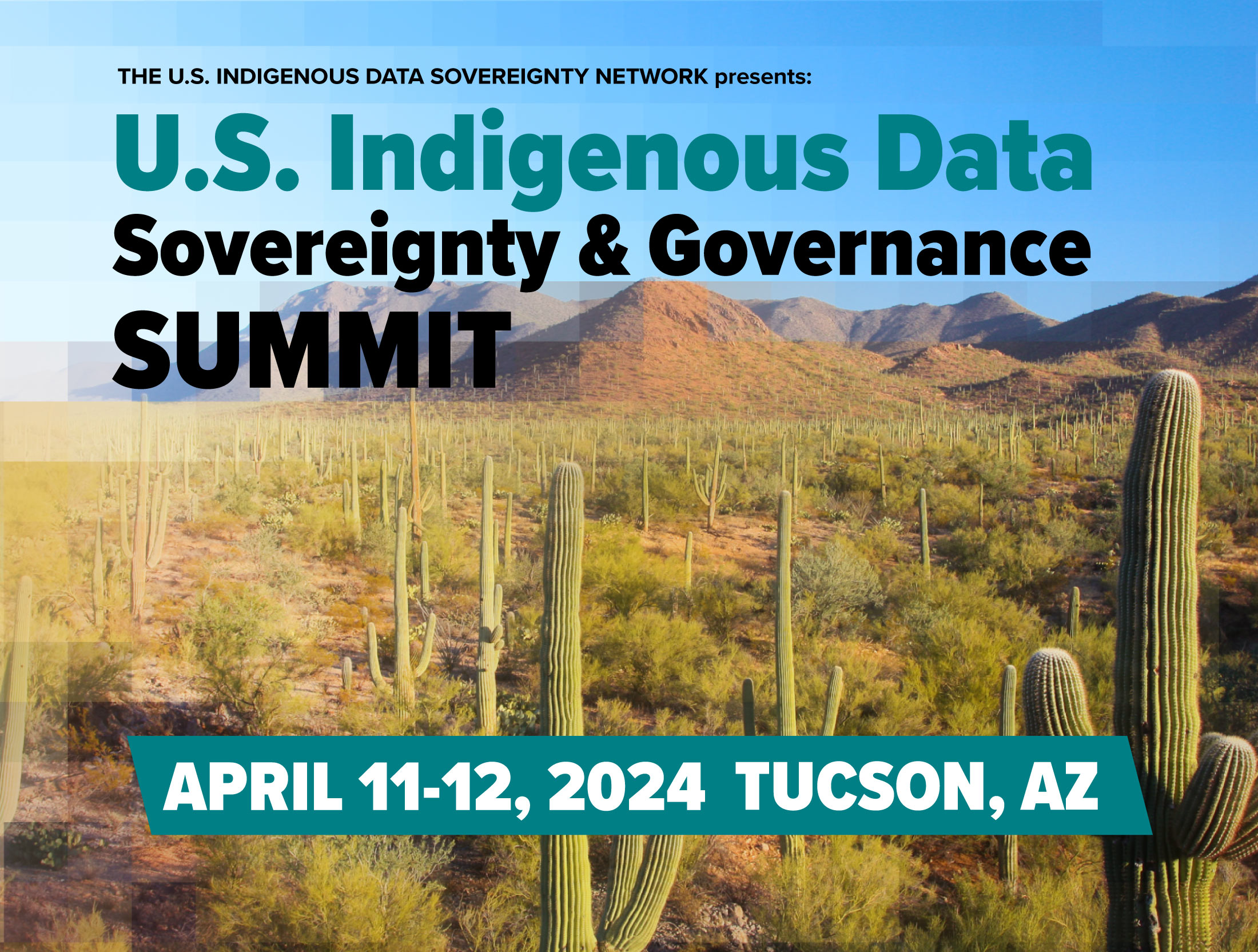Protecting Indigenous Knowledge: The Fight For Data Sovereignty

Table of Contents
Understanding Data Sovereignty in the Context of Indigenous Knowledge
Defining Data Sovereignty
Data sovereignty is the ability of individuals and communities to control the collection, ownership, use, and sharing of their data. In the context of Indigenous knowledge, it means recognizing Indigenous communities as the rightful custodians of their own information, granting them the authority to determine how their knowledge is accessed, used, and protected. This contrasts with data security, which focuses primarily on technical protections against unauthorized access, while data sovereignty encompasses broader control over the entire data lifecycle.
- Difference between Data Sovereignty and Data Security: Data security focuses on the technical protection of data, while data sovereignty encompasses the right to control the data's use and sharing.
- Examples of Indigenous Data Sovereignty: Many Indigenous communities are establishing their own data repositories, developing culturally appropriate data governance frameworks, and working with researchers on collaborative projects based on principles of free, prior, and informed consent (FPIC).
- Relevant Legislation and Declarations: The UN Declaration on the Rights of Indigenous Peoples (UNDRIP) acknowledges the rights of Indigenous peoples to their traditional knowledge and cultural heritage, providing a strong foundation for claims of data sovereignty. Specific national legislation also plays a crucial role in protecting Indigenous data.
The Significance of Indigenous Knowledge
Indigenous knowledge systems are vital for cultural preservation, environmental sustainability, and economic development. They represent unique perspectives and insights accumulated over millennia, often holding the key to sustainable practices and solutions to contemporary challenges.
- Examples of Traditional Practices and Their Value: Traditional medicinal plants, sustainable agricultural techniques, ecological knowledge for resource management, and traditional navigation systems are just a few examples of the immense value of Indigenous knowledge.
- Unique Perspectives and Insights: Indigenous knowledge offers unique perspectives on environmental stewardship, community governance, and health, which can inform and enrich broader scientific and societal understanding.
Threats to Indigenous Knowledge and the Need for Data Sovereignty
Biopiracy and Intellectual Property Rights
Biopiracy, the unauthorized appropriation of Indigenous knowledge and genetic resources, is a major threat. Companies and researchers often exploit this knowledge for commercial gain without proper consent or compensation, violating Indigenous intellectual property rights and cultural integrity.
- Examples of Biopiracy Cases: Numerous cases exist where traditional medicinal plants or agricultural practices have been patented by outside entities without the knowledge or consent of the Indigenous communities who developed them.
- Data Sovereignty as a Preventative Measure: Data sovereignty helps prevent biopiracy by ensuring Indigenous communities control the dissemination and use of their knowledge. This necessitates clear protocols for data sharing and collaboration.
- Challenges in Enforcing Intellectual Property Rights: Establishing and enforcing intellectual property rights related to Indigenous knowledge presents significant legal and practical challenges, highlighting the need for innovative legal frameworks.
Data Colonialism and the Digital Divide
Data colonialism refers to the extraction and exploitation of Indigenous data without consent or community benefit. The digital divide further exacerbates this issue, as unequal access to technology and digital literacy limits Indigenous communities' ability to participate in and benefit from the digital world.
- Risks of Data Collection without Consent: Data collected without free, prior, and informed consent can be misused, misrepresented, or used against the interests of Indigenous communities.
- The Digital Skills Gap: Lack of digital literacy and access to technology hinders Indigenous communities' ability to manage and protect their own data.
- Biased Algorithms and Systemic Inequalities: Algorithms trained on biased data can perpetuate systemic inequalities, further marginalizing Indigenous communities.
Strategies for Protecting Indigenous Knowledge through Data Sovereignty
Community-Based Data Governance
Community-based data governance models empower Indigenous communities to lead the collection, management, and use of their own data. This includes the establishment of Indigenous-led data repositories, the development of culturally appropriate data governance frameworks, and the training of Indigenous data custodians.
- Examples of Successful Initiatives: Several Indigenous communities have successfully implemented community-based data governance models, demonstrating the effectiveness of this approach.
- Role of Indigenous Data Custodians: Indigenous knowledge holders and data custodians play a crucial role in safeguarding and interpreting their communities’ data.
- Culturally Appropriate Data Management Practices: Data management practices must respect and align with Indigenous cultural protocols and values.
Policy and Legislation
Supportive policies and legislation at national and international levels are crucial for recognizing and protecting Indigenous data sovereignty.
- Relevant Legislation and Policy Frameworks: Governments need to develop and implement legislation that explicitly recognizes Indigenous data rights and promotes community-based data governance.
- Inclusion of Indigenous Voices: Indigenous communities must be actively involved in the development and implementation of policies related to data sovereignty.
- International Declarations: The UNDRIP provides a crucial framework for advancing Indigenous data sovereignty.
Technology and Capacity Building
Technology can play a significant role in protecting Indigenous knowledge, but only when paired with robust capacity building within Indigenous communities.
- Relevant Technologies: Technologies like blockchain, secure data platforms, and digital archiving systems can help protect Indigenous data.
- Training and Support: Investing in digital literacy training and technical support for Indigenous communities is essential for ensuring they can effectively use and manage these technologies.
Conclusion
Protecting Indigenous Knowledge through Data Sovereignty is not merely a technical challenge but a moral imperative. The threats of biopiracy, data colonialism, and the digital divide demand urgent action. By empowering Indigenous communities to control their own data through community-based governance, supportive policies, and accessible technology, we can safeguard invaluable knowledge for present and future generations. Learn more about supporting Indigenous-led initiatives and advocate for policies that prioritize the rights of Indigenous communities to control their own data. Support organizations working to protect Indigenous knowledge and contribute to building a more just and equitable digital world.

Featured Posts
-
 Pl Retro Accessing Sky Sports Premier League Classics In Hd
May 13, 2025
Pl Retro Accessing Sky Sports Premier League Classics In Hd
May 13, 2025 -
 Demi Moores Hit Show Created By Yellowstones Mind Returns For A Second Season
May 13, 2025
Demi Moores Hit Show Created By Yellowstones Mind Returns For A Second Season
May 13, 2025 -
 Billy Bob Thorntons Landman Defense Supporting Ali Larter And Angela Norris Amidst Controversy
May 13, 2025
Billy Bob Thorntons Landman Defense Supporting Ali Larter And Angela Norris Amidst Controversy
May 13, 2025 -
 Sixers Nba Draft Lottery Odds How To Watch And What To Expect
May 13, 2025
Sixers Nba Draft Lottery Odds How To Watch And What To Expect
May 13, 2025 -
 Trumps Plan To Lower Drug Prices Examining The Executive Order
May 13, 2025
Trumps Plan To Lower Drug Prices Examining The Executive Order
May 13, 2025
Latest Posts
-
 Aldi Recalls Shredded Cheese Due To Steel Contamination Risk
May 14, 2025
Aldi Recalls Shredded Cheese Due To Steel Contamination Risk
May 14, 2025 -
 Aldi Cheese Recall Possible Steel Fragments Found In Shredded Cheese Packets
May 14, 2025
Aldi Cheese Recall Possible Steel Fragments Found In Shredded Cheese Packets
May 14, 2025 -
 Recall Alert Walmarts Tortilla Chips And Jewelry Kits Recalled
May 14, 2025
Recall Alert Walmarts Tortilla Chips And Jewelry Kits Recalled
May 14, 2025 -
 Nationwide Recall Walmarts Action On Unsafe Baby Products
May 14, 2025
Nationwide Recall Walmarts Action On Unsafe Baby Products
May 14, 2025 -
 Consumer Alert Walmart Recalls Tortilla Chips And Jewelry Kits
May 14, 2025
Consumer Alert Walmart Recalls Tortilla Chips And Jewelry Kits
May 14, 2025
